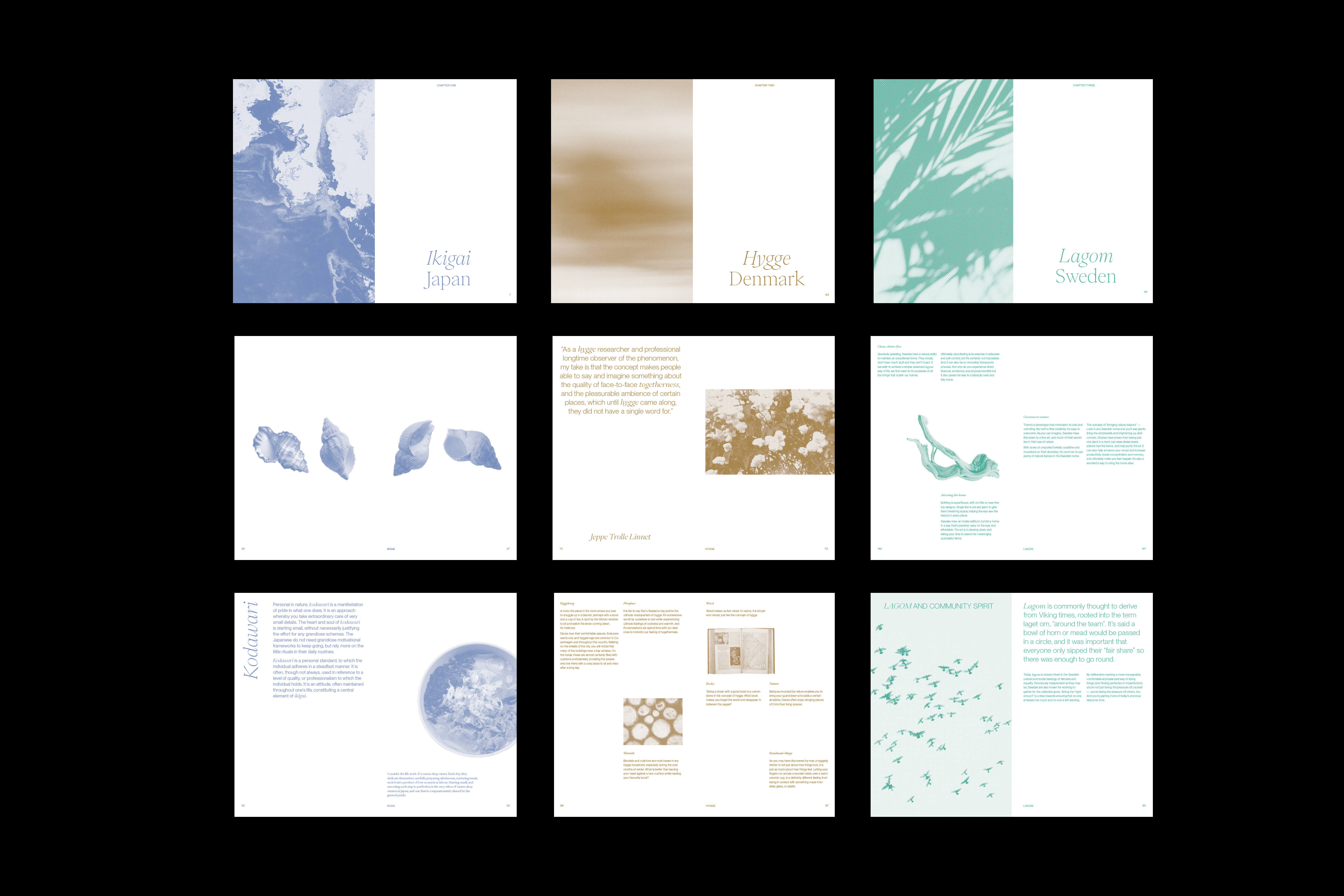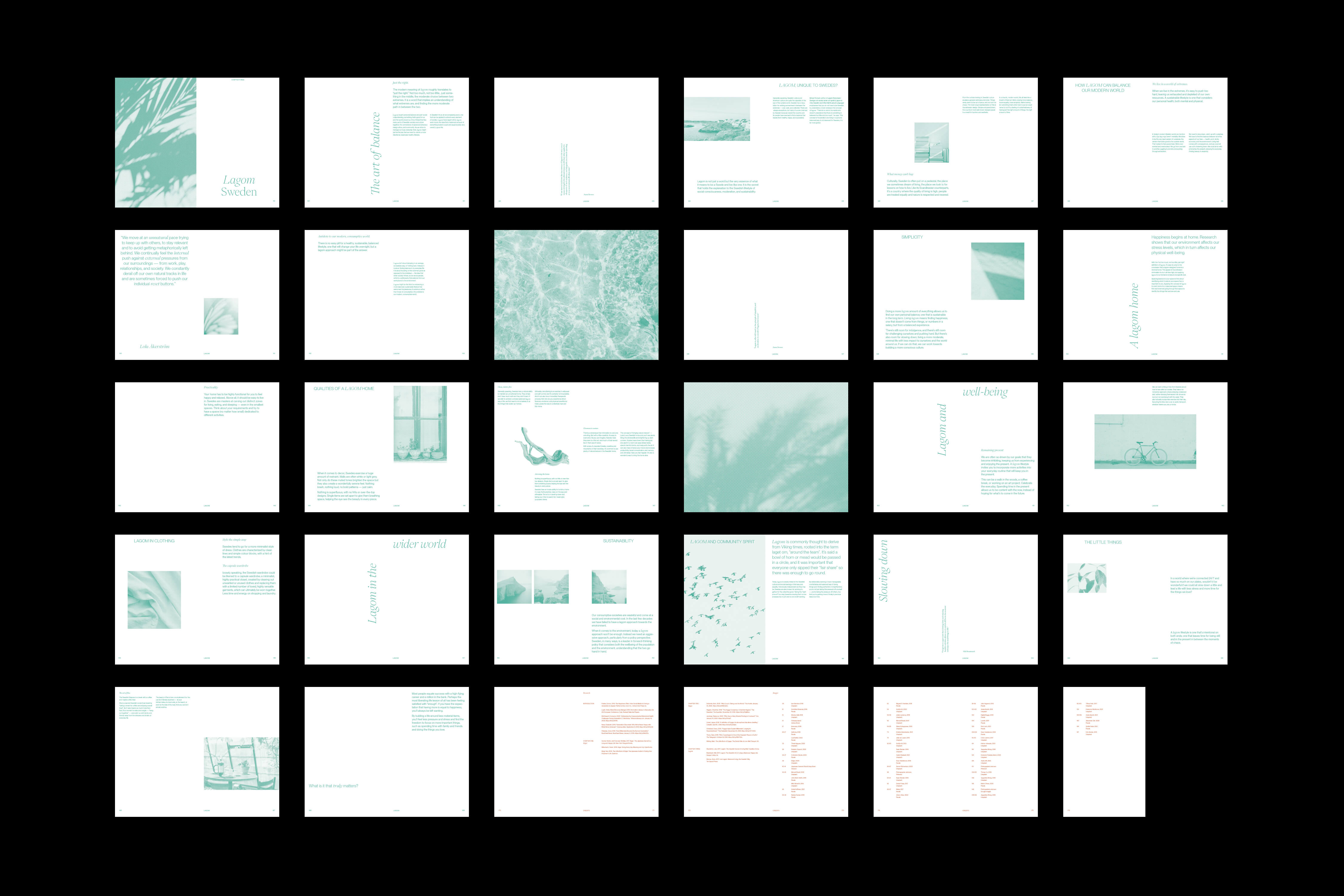


How does the recent mainstream popularity of lifestyle philosophies — Ikigai (Japanese), Hygge (Danish), and Lagom (Swedish) — reflect a growing culture of discontent among Generation Z in 2022? For many young people, happiness and success often feel like two elusive concepts — like a destination that never quite arrives. For the average middle-class young adult, there is an unspoken pressure to constantly move through life as productively as possible. Work hard, get to the next level of professional status, strive for the next biggest thing, and so forth. As a result, this restlessness of getting to the next is robbing us of our contentment in the now. The past five years alone have seen a surge in mainstream fascination for lifestyle philosophies from cultures around the world, gaining particular traction in the West on social media and among wellness communities. With this trend, however, many of the core teachings and origins of the philosophies get buried or become lost entirely. Regardless, there’s no denying that a greater population — young adults, in particular — find themselves drawn to their values now more than ever.
How does the recent mainstream popularity of lifestyle philosophies — Ikigai (Japanese), Hygge (Danish), and Lagom (Swedish) — reflect a growing culture of discontent among Generation Z in 2022? For many young people, happiness and success often feel like two elusive concepts — like a destination that never quite arrives. For the average middle-class young adult, there is an unspoken pressure to constantly move through life as productively as possible. Work hard, get to the next level of professional status, strive for the next biggest thing, and so forth. As a result, this restlessness of getting to the next is robbing us of our contentment in the now. The past five years alone have seen a surge in mainstream fascination for lifestyle philosophies from cultures around the world, gaining particular traction in the West on social media and among wellness communities. With this trend, however, many of the core teachings and origins of the philosophies get buried or become lost entirely. Regardless, there’s no denying that a greater population — young adults, in particular — find themselves drawn to their values now more than ever.
How does the recent mainstream popularity of lifestyle philosophies — Ikigai (Japanese), Hygge (Danish), and Lagom (Swedish) — reflect a growing culture of discontent among Generation Z in 2022? For many young people, happiness and success often feel like two elusive concepts — like a destination that never quite arrives. For the average middle-class young adult, there is an unspoken pressure to constantly move through life as productively as possible. Work hard, get to the next level of professional status, strive for the next biggest thing, and so forth. As a result, this restlessness of getting to the next is robbing us of our contentment in the now. The past five years alone have seen a surge in mainstream fascination for lifestyle philosophies from cultures around the world, gaining particular traction in the West on social media and among wellness communities. With this trend, however, many of the core teachings and origins of the philosophies get buried or become lost entirely. Regardless, there’s no denying that a greater population — young adults, in particular — find themselves drawn to their values now more than ever.












This book is the final component of my thesis project, the culmination of extensive research into three selected philosophies with unifying themes. A total of 176 pages and coptic-bound by hand, it is a visual exploration of Ikgiai, Hygge, and Lagom — three beautiful philosophies from Japanese and Scandinavian cultures that uphold the gentle but enduring values of slowing down, living wholeheartedly, loving intentionally, and above all, finding fulfillment not in big achievements or worldly acclaim, but in the realm of small things.
This book is the final component of my thesis project, the culmination of extensive research into three selected philosophies with unifying themes. A total of 176 pages and coptic-bound by hand, it is a visual exploration of Ikgiai, Hygge, and Lagom — three beautiful philosophies from Japanese and Scandinavian cultures that uphold the gentle but enduring values of slowing down, living wholeheartedly, loving intentionally, and above all, finding fulfillment not in big achievements or worldly acclaim, but in the realm of small things.
This book is the final component of my thesis project, the culmination of extensive research into three selected philosophies with unifying themes. A total of 176 pages and coptic-bound by hand, it is a visual exploration of Ikgiai, Hygge, and Lagom — three beautiful philosophies from Japanese and Scandinavian cultures that uphold the gentle but enduring values of slowing down, living wholeheartedly, loving intentionally, and above all, finding fulfillment not in big achievements or worldly acclaim, but in the realm of small things.











